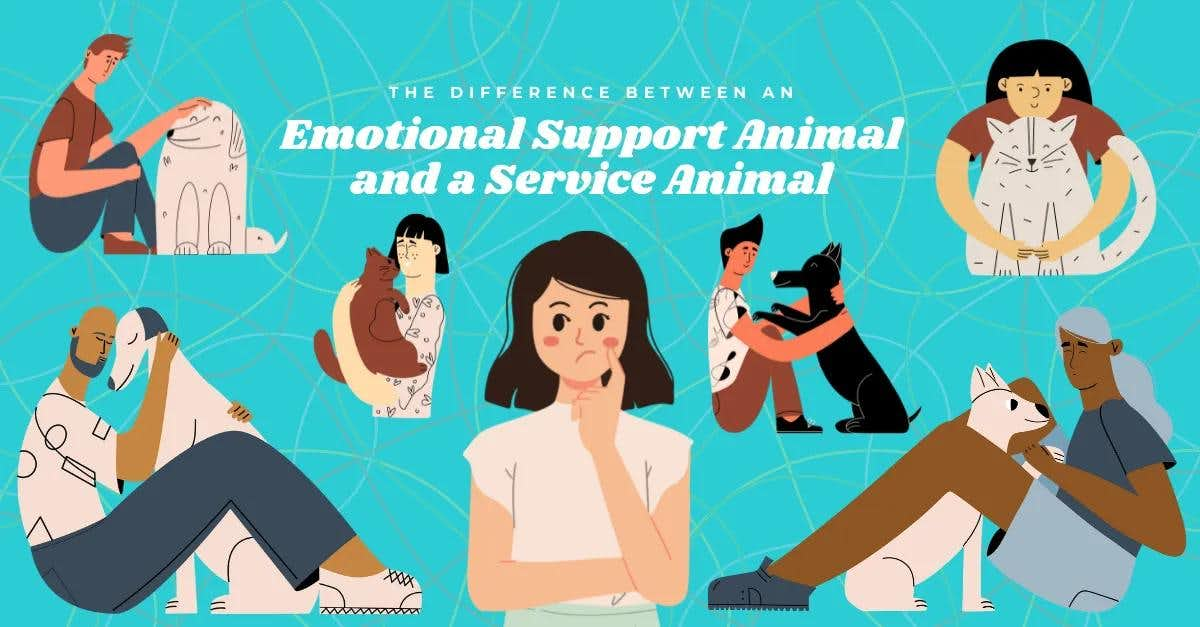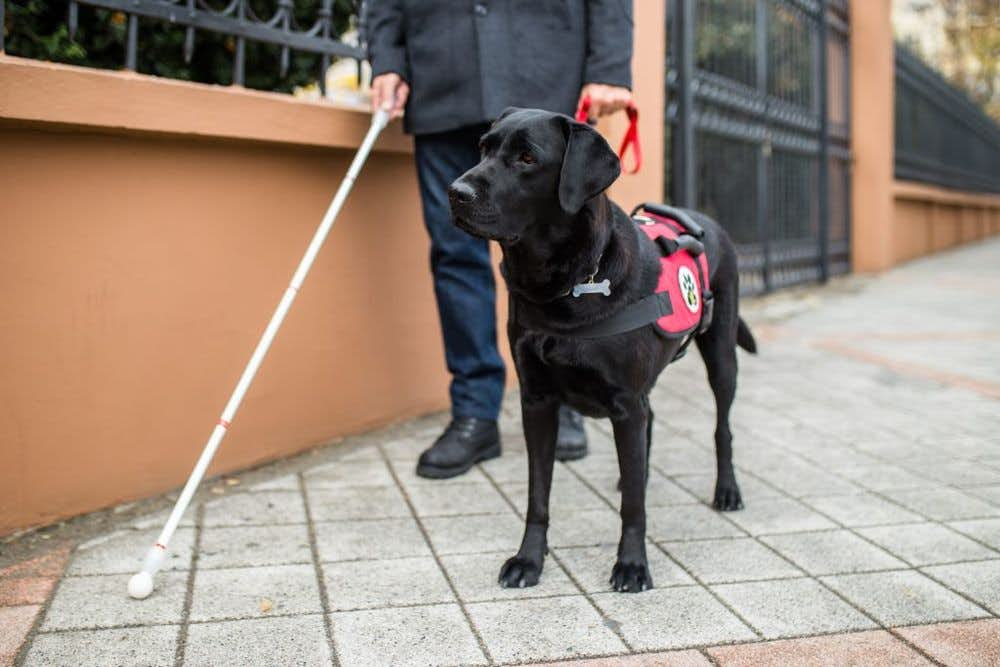July 8th, 2022

Human-animal interactions are growing in popularity as a modality for psychiatric treatment as they have been known to provide multiple health benefits. Empirical evidence for decades has shown that animal therapies not only assist in physical health but can also produce positive changes in social and psychological contexts.
However, the terminology surrounding these animal treatments has vastly changed throughout the years. Service dogs, therapy dogs, and emotional support animals are commonly used and often interchanged. While each of these types of animals can fulfill important roles for their human counterparts, the legal limitations, training, and function of these animals vary greatly.

An emotional support animal (ESA) is typically the easiest to acquire and requires the least amount of training, upkeep, and education for the animal and owner. However, they also provide fewer interventions and are not given as many rights under the law. Here are a few facts about ESAs:
Regarding additional considerations, an ESA is not limited to dogs. This category of animals has been known to include cats, birds, hamsters, pigs, and even a horse. Unfortunately, more uncommon animals or exotic pets can cause undue hardship to the public or even the individual. Thus, clinicians should practice caution and understand if the benefit of the ESA would cause further stress and difficulty to the patient.
A therapy dog is often interchangeable between emotional support animals and service animals. However, these animals are in their own specific category in terms of role and intervention.

A service animal is typically the highest form of animal intervention as these dogs require additional training and education for their owners, and they provide the most integrated services to patients.
There are some special considerations to understand with service dogs as it pertains to clinicians and handlers. First, handlers are given protection regarding inquiries about their service dog. Staff in public areas, such as in transportation, restaurants, or medical offices, may only ask two questions of trained service animals.
All other questions such as what type of disability, request to see credentials or identification cards, or demonstration of such tasks are not allowed.
However, establishments may refuse the service dog or ask to remove the dog from the premises if the dog is out of control or not housebroken.
Determining your need for animal assistance is a personal and often collaborative decision between you and your mental health professional. This usually begins with an overview of current symptoms and their impact on functionality. In addition, while ESA and service dogs provide great comfort and multiple treatment benefits, owning and taking care of an animal takes a great amount of care and involvement.
There are no legislations or certifications to be an owner of an animal, so individuals must decide for themselves if they have the time, finances, and emotional capacity to take care of an animal. Furthermore, regardless of the type of treatment animal, owners must abide by all state, local, and county laws. These often require owners to register, pay taxes and fees, and obtain certain shots required by the ordinance in their living area.

If you believe an animal will be of service to your physical and/or mental health, the next step would be to discuss options with a mental health professional. Often, individuals with pre-existing mental health conditions or physical disabilities already have resources in place such as attending weekly therapy with a licensed clinician or obtaining prescription medication with a psychiatric prescriber. These individuals are typically the first step as they will provide documentation and assess your need for treatment regarding animal therapies.
Written By: Dr. Ashley Head, PsyD.
At Clarity Clinic, we have highly trained staff who specialize in therapy and psychiatry services. To learn more about how we can support your mental health, call Clarity Clinic at (312) 815-9660 or schedule an appointment today.
Our Services
Virtual/Online CarePHP and IOPAdult PsychiatryChild & Adolescent PsychiatryAdult TherapyChild & Adolescent TherapyCouples CounselingFamily TherapyGroup TherapyPsychological TestingTranscranial Magnetic Stimulation (TMS)